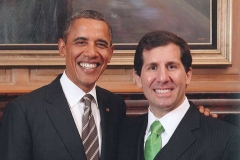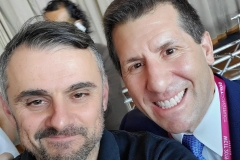Citing the recent cyber-hack of Anthem, John Shegerian, Chairman and CEO of Electronic Recyclers International (ERI), the nation’s leading recycler of electronic waste, has issued a public statement warning the healthcare industry, businesses and consumers alike to take extra precautions to protect their private digital data and records in this age of increased identity theft.
Anthem, the second largest health insurance provider in the United States, revealed last Thursday that its records had been compromised by hackers—resulting in the possible leaking of names, birthdays, addresses, Social Security numbers, and employment data for up to 80 million present and former customers.
“This is more than a simple invasion of privacy, although it is that as well,” said Shegerian. “With the theft of medical records comes a whole new host of problems and concerns, perhaps even worse than other forms of cybercrime. Whereas credit card fraud may be corrected in a relatively straightforward manner, it can be tougher to identify that medical data has been breached. Maximum insurance payout limits may be reached as a result of fraudulent claims, and this might only be discovered when a consumer’s claims for legitimate services are denied. Plus, there’s the problem that people’s private health information and medical records are out there and vulnerable, which undoes everything the HIPAA Privacy Rules were designed to protect.”
Recent news reports have detailed how hacking has become a major concern for medical data misuse, with the increasing digitization of medical records, combined with the still more recent shift toward cloud-based record holding and the growing role of technology in health care exacerbating the issue. IDC Health Insights recently reported that 70% of health care organizations worldwide will invest in mobile health tech such as apps, wearables, remote monitoring, and virtual care by 2018.
In his statement, Shegerian commended Anthem for being swift and forthcoming in alerting customers to the problems but warns that simply being alert is only one layer of protection against identity thieves. He stressed that in an age when virtually everyone has private or personal information on their computers, it is critical for our hospitals and health insurers – as well as government, businesses, and individuals – to protect themselves and their constituents by simply not throwing their electronic data in the trash.
“The Anthem data breach brings with it a clarion call to protect our data at all levels,” added Shegerian. “It is so important in this digital age that we as consumers protect our private information on all our electronic devices as well. With current technological innovations, there is very fast turnover when it comes to business and private computers, laptops, cell phones, and other consumer electronic devices. Proper protection and destruction of private digital data has become a significantly important issue that needs to be addressed by all governmental, corporate, and healthcare organizations as well as every US citizen.
“For example, if data from the hard drives of disposed consumer electronic devices is not properly shredded and destroyed, personal information can easily be breached by identity thieves and our Homeland and National Security can even be put in senseless jeopardy,” he added. “At ERI, we know how important this is and have developed the world’s most efficient shredding technology for the destruction and recycling of e-waste. Anthem’s current troubles with the cyber theft of medical records serve as yet another powerful example of why the appropriate destruction and/or recycling of electronic waste needs to be addressed now on a national level.”



















